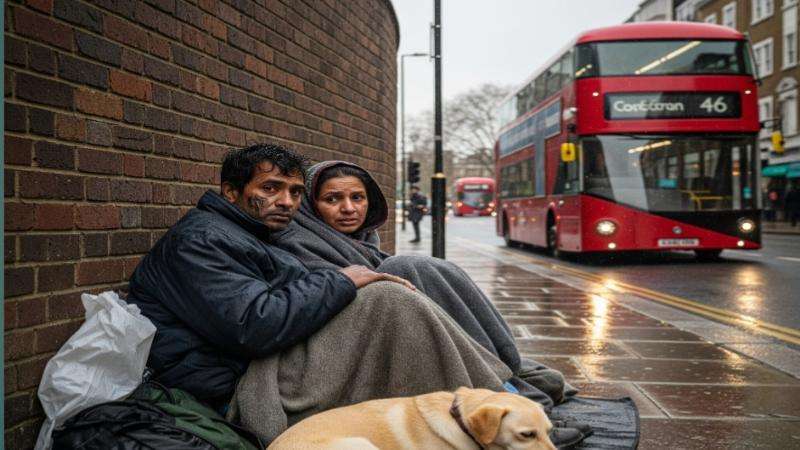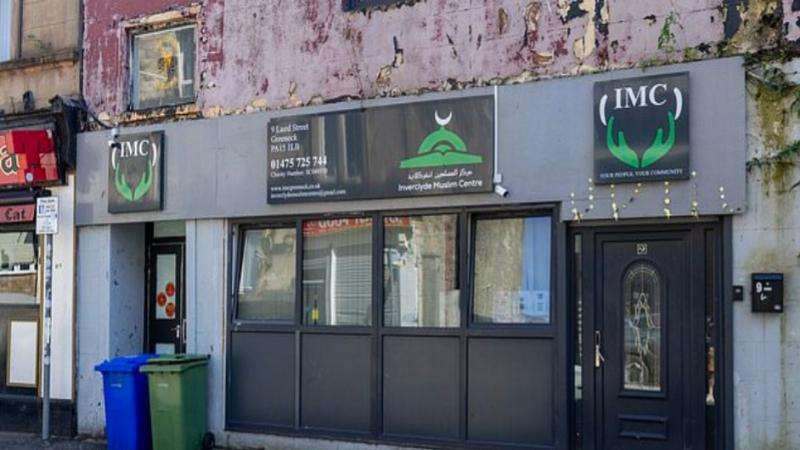The UK's homelessness crisis is casting a long shadow, with recent data revealing a stark and disproportionate impact on ethnic minority communities, particularly those of South Asian descent. While headlines often focus on broader statistics, an in-depth look at the experiences of Bangladeshi, Indian, and Pakistani individuals, and the wider BAME Muslim community, paints a concerning picture of systemic disadvantage and discriminatory practices, Daily Dazzling Dawn understands.
Alarming Disparities in Homelessness
Recent research, including a significant three-year project by academics at Heriot-Watt University, has highlighted that ethnicity significantly increases a person's risk of homelessness, even when accounting for factors like geography, poverty, and homeownership. This groundbreaking study, the first major exploration of homelessness and racism in over two decades, found that Black people in England are almost four times as likely to face homelessness as white people. While the study predominantly focused on the experiences of Black individuals, the findings resonate across various ethnic minority groups, including those of South Asian heritage, who often face similar, if not compounded, barriers.
While specific, granular data solely on homelessness rates for individual South Asian groups (Bangladeshi, Indian, Pakistani) can be challenging to disaggregate precisely from broader "Asian" or "BAME" categories in all publicly available statistics, broader trends indicate a heightened vulnerability. For instance, the latest official homelessness statistics for England show that households from ethnic minority groups are over-represented in homelessness applications and acceptances. While not broken down by specific South Asian ethnicity, this aggregate data underscores the problem within these communities.
Barriers to Social Housing and the Private Rented Sector
One of the most critical findings of the Heriot-Watt study was the severe disparity in access to social housing. The research, which analysed 750,000 household outcome records from official homelessness data between 2019-20 and 2021-22, found that only 10% of Black families in the statutory homelessness system gained access to social housing, compared with 24% of white families. Anecdotal evidence and reports from housing charities suggest similar challenges for South Asian families.
Professor Suzanne Fitzpatrick, the lead author of the Heriot-Watt report, emphasized the dual nature of the problem: "There are long-term forms of structural disadvantage, rooted in historic racism, which are impacting on risks of homelessness. But the data indicates present-day discrimination is also playing a role."
This "present-day discrimination" is particularly evident in the private rented sector, a crucial entry point for many seeking housing. Reports from individuals across various BAME groups, including those from South Asian backgrounds, detail instances of overt racism from private landlords – ranging from outright refusals to house individuals based on their ethnicity or refugee status, to imposing unfair rules and restrictions not applied to other tenants. Some individuals even reported resorting to changing their names, accents, or hairstyles in an attempt to bypass such discrimination and secure housing. The added layer of religious discrimination, often faced by the Muslim community within South Asian groups, can further exacerbate these challenges.
The Human Cost and Call for Change
The personal toll of homelessness on individuals and families is immense. Stories of families living in cramped, unsuitable temporary accommodation for years, with children developing health issues due to persistent mould, are tragically common. The emotional and mental health impact, leading to "nervous breakdowns" as described by one individual, is a stark reminder of the devastating consequences of housing insecurity.
These experiences highlight the urgent need for systemic change. The Heriot-Watt research was specifically designed to "fill a longstanding gap in knowledge about race and homelessness in the UK," particularly after the 2021 Sewell report on racial disparity made scant reference to housing.
Key recommendations from the research include leveraging the proposed private rented sector landlord ombudsman, as outlined in the renter's rights bill, to actively address and challenge racist practices by landlords. Furthermore, the report strongly advocates for rejecting "ethnicity-blind" approaches within housing departments. As Professor Fitzpatrick stressed, "It’s really unacceptable that people who are already in a crisis situation are sometimes traumatised by their treatment at the hands of local authority homelessness officers that are there to assist them. If you’ve got people coming into a system with structural disadvantage, you have to be aware of that."
The call for change is clear: laws need to evolve to protect vulnerable communities, and housing systems must acknowledge and actively combat the deep-rooted structural disadvantages and present-day discrimination that disproportionately push South Asian and other ethnic minority communities into the despair of homelessness.
_2.jpg)
_1.jpg)






.svg)


.jpg)
